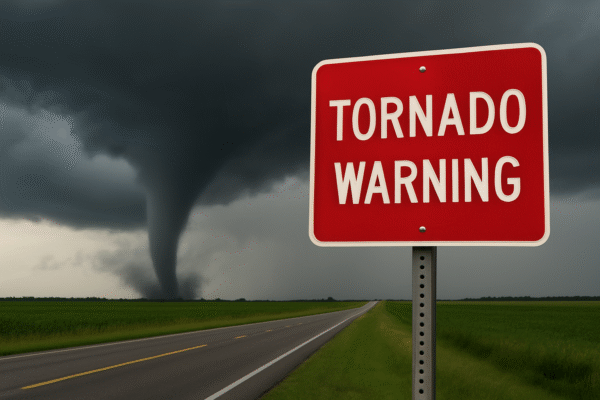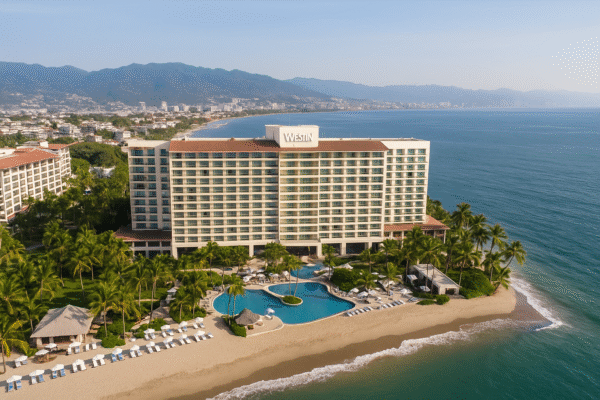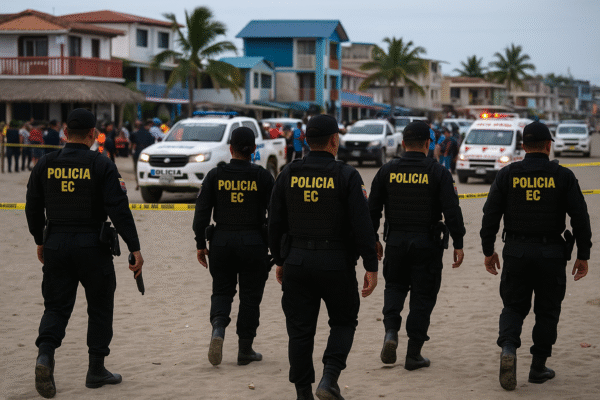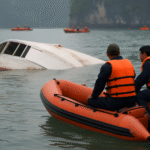Ecuador’s Tourism in Crisis: Rising Gang Violence Threatens Travel Safety in 2025
Ecuador, once celebrated for its captivating natural beauty, warm hospitality, and vibrant culture, now finds itself grappling with an escalating wave of drug-related violence that is severely impacting its tourism industry. A recent mass shooting in the beach town of General Villamil Playas has brought the crisis into sharp focus, causing national shock and sparking international concern about the country’s safety for visitors.
Violence Shakes Popular Beach Destination
On a Saturday afternoon in June 2025, a group of armed men entered a local pool bar in General Villamil Playas—a destination popular among domestic tourists—and opened fire indiscriminately. At least nine people were killed and several others injured in the attack, which was reportedly carried out using automatic weapons.
Horrifying footage and images quickly spread on social media, showing bloodied bodies and chaotic scenes. Some victims were pulled out by family members before authorities could identify them, adding to the confusion and trauma surrounding the incident.
This coastal town, located in Guayas province, has long been known for its relaxed beach atmosphere and family-friendly appeal. Now, it has become a grim symbol of the drug-fueled violence that is spreading across the country.
Record Homicides Signal Deepening Crisis
According to Ecuador’s Ministry of Government, the country recorded over 4,300 homicides in the first five months of 2025 alone—an all-time high. Much of the violence is attributed to turf wars between drug trafficking organizations that have expanded operations along Ecuador’s Pacific coast.
Ecuador’s strategic location between Colombia and Peru—two of the world’s largest cocaine producers—has made it a lucrative corridor for narcotics smuggling. Ports like Guayaquil and Manta have become key battlegrounds for rival gangs seeking control of drug routes to North America and Europe.
In response, President Daniel Noboa’s government has declared a series of states of emergency in high-crime areas. Yet despite aggressive crackdowns and high-profile arrests, including the June 2025 recapture of the notorious gang leader Adolfo “Fito” Macías, violence continues to rise.
Impact on Ecuador’s Tourism Sector
Tourism, which contributed over $2 billion to Ecuador’s economy in 2023, is now facing an existential threat. Travel companies are reporting declining bookings, particularly for coastal destinations like Playas, Salinas, and even Guayaquil—formerly promoted as urban tourism hubs.
While the Galápagos Islands remain relatively safe due to their isolation, mainland Ecuador’s appeal as a multi-stop travel destination is waning. Adventure travelers once drawn to hiking in Cotopaxi, surfing in Montañita, or exploring the Amazon are now reconsidering their plans.
The U.S. Department of State currently advises travelers to reconsider travel to several Ecuadorian provinces, including Guayas and Esmeraldas, due to crime and civil unrest. Similar advisories have been issued by Canada and the United Kingdom.
Tour operators are also adjusting itineraries. “We’ve started diverting coastal tours away from Guayaquil and into safer Andean destinations like Cuenca,” says María Beltrán, an Ecuador-based travel agency owner. “But the damage to our national image is hard to undo.”
Economic Fallout for Local Businesses
The ripple effects are being felt by local economies that depend heavily on tourism. In Playas, small hotels and beachfront eateries report significant drops in weekend visitors. Souvenir vendors and surf instructors are seeing their incomes dry up, while larger resorts face cancellation waves.
According to the Ecuadorian Federation of Tourism Chambers (Fenacaptur), some regions have reported up to a 40% decline in domestic tourism since April 2025. The federation is urging the government to prioritize security reforms and offer emergency support for affected tourism businesses.
Government Security Measures Fall Short
In the aftermath of the Playas shooting, authorities deployed 2,500 police officers to reinforce key zones in Guayas and Manabí provinces. Manta, a major port city, has seen increased patrols, curfews, and military checkpoints.
However, critics argue these efforts are reactive and fail to address deeper systemic issues, such as gang infiltration of local governments, prison corruption, and social inequality. Ecuador’s prison system, long dominated by organized crime, remains a flashpoint—many attacks are orchestrated from within penitentiaries.
“We need not just soldiers in the streets but long-term judicial and social reform,” says Carla Murillo, a Quito-based security analyst. “Otherwise, we risk becoming a no-go zone for international travelers.”
The Path Forward: Recovery and Resilience
Despite the grim headlines, Ecuador’s tourism leaders remain cautiously optimistic. The Ministry of Tourism has launched a new “Safe Ecuador” initiative aimed at restoring traveler confidence through public safety campaigns, updated travel advisories, and regional collaborations with Colombia and Peru on security intelligence sharing.
There’s also discussion around creating “Tourist Safety Zones” with enhanced security presence in popular areas, modeled after similar programs in Mexico and Brazil.
International organizations, including the Inter-American Development Bank (IDB), are stepping in to provide funding and expertise for tourism resilience and crime prevention programs. Meanwhile, local communities are mobilizing to reclaim their spaces with cultural festivals and public engagement.
Conclusion: A Nation at a Crossroads
Ecuador’s natural wonders—from the Andes to the Amazon and the Galápagos—remain unmatched. But until the country reins in drug-fueled violence, its tourism sector will struggle to rebound. The massacre in General Villamil Playas is not just a tragedy—it’s a turning point.
Whether Ecuador emerges stronger from this crisis depends on bold political leadership, international support, and the resilience of its people. The journey to restore Ecuador’s reputation as a safe, welcoming destination may be long—but it is one worth taking.
For more travel news like this, keep reading Global Travel Wire
















